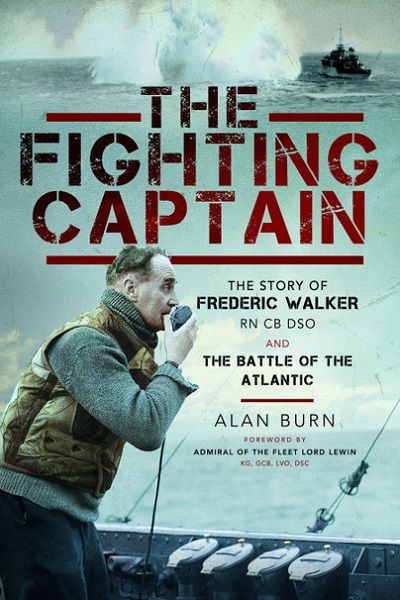Captain F J Walker, RN, did more than any other man at sea to win the Battle of the Atlantic, a vicious and unrelenting struggle which Churchill described as the dominating factor throughout World War Two.
He was a formidable figure and one of the greatest fighting captains in the history of the Royal Navy, sinking twenty U-boats. For this he was awarded a CB and four DSOs, only the second man in the history of the Royal Navy to receive this award four times.
A month after D-Day, exhausted by his continuous actions at sea against the enemy and his successful exertions to keep the U-boats out of the English Channel to ensure the safe passage of the Allied landings at D-day, he went ashore in Liverpool after a patrol. His ships and the men he had trained and inspired were already back at sea when he died on the 9 July, 1944, aged 48.
His ships went on to sink another nine U-boats, bring his flotillas total up to twenty-nine, before the U-boat fleet finally surrendered. Fifteen of which were sunk by Walker's own ship, HMS Starling.
ISBN: 9781399077279
Format: Paperback
Author(s): Alan Burn
First Publishment Date: 12 December 2022




